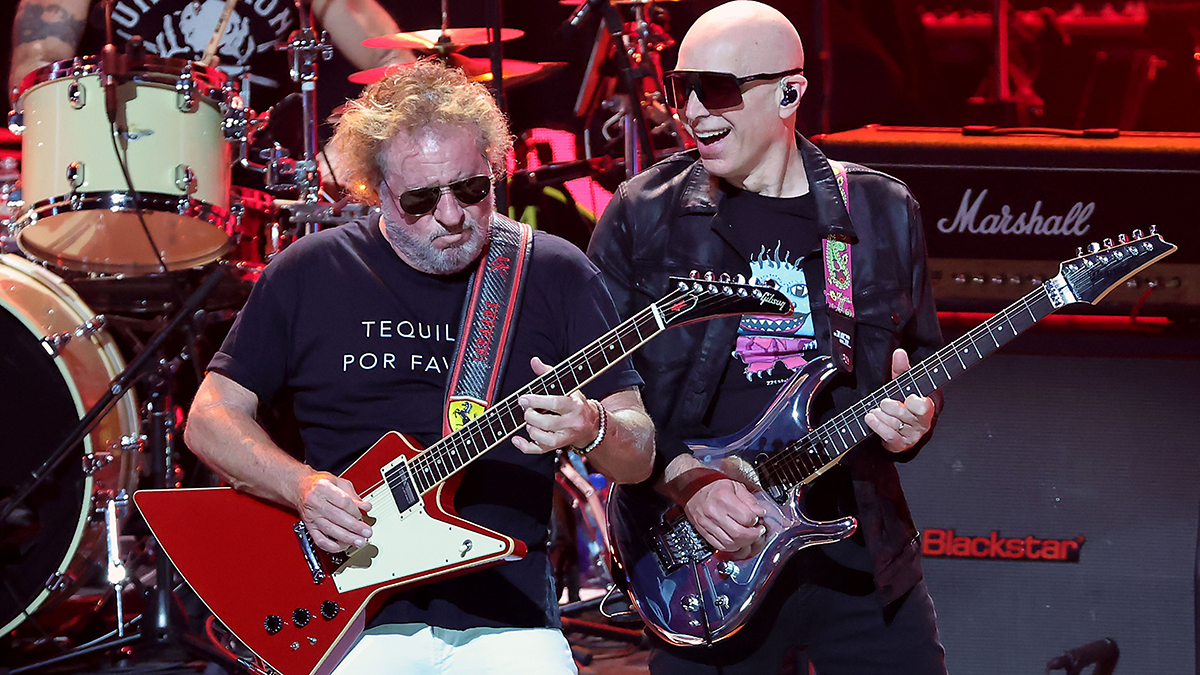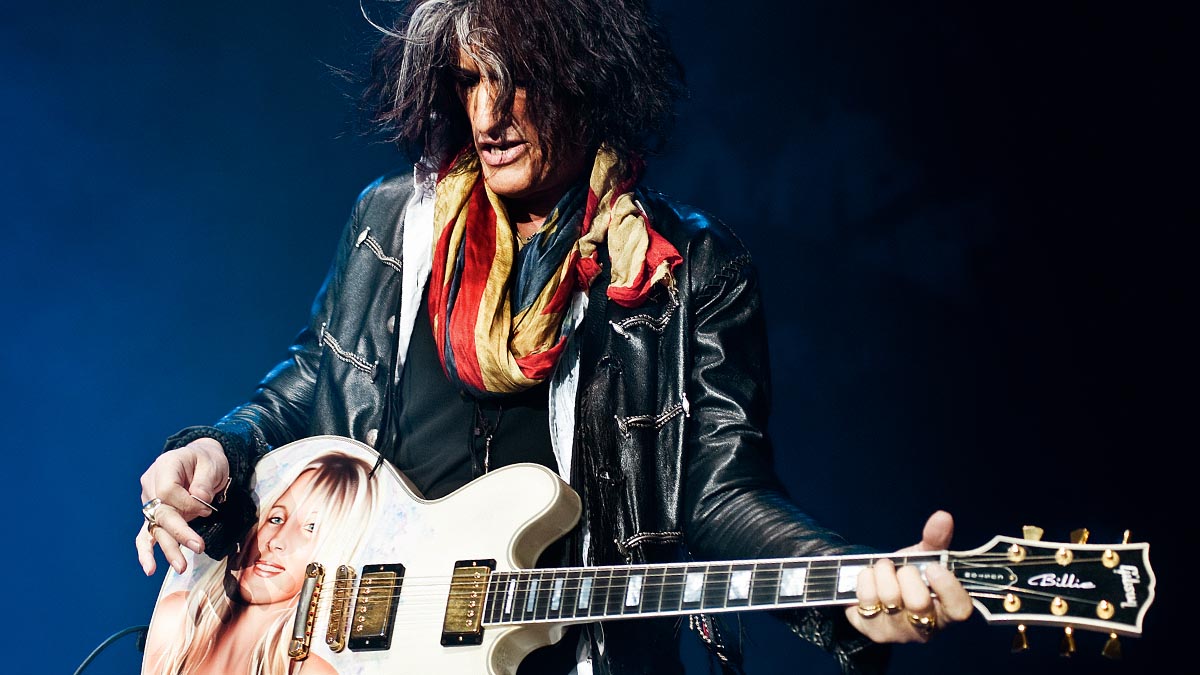Bent Out of Shape: When It Comes to Double Tracking Rhythm Guitars, Try Thinking Outside the Box

Like many guitarists, I have a daily practice routine that helps keep my chops in shape and develop my technique. I spend many hours each day working with a metronome running through scales and exercises.
These routines are the norm for most serious guitarists, but you must be careful. If you devote too much time to practicing scales and technique, you might lose focus on more important longterm goals.
I've always had a goal to develop my own style and not sound like one of the many "clones" out there. After playing for a few years, I realized all of my practice time was devoted to working on technique and learning other guitarists' licks. I had lost sight of my goal.
After this revelation, I began to spend more time working on writing and being creative as a guitarist and musician. I also realized how important it is to question everything you learn and develop your own opinion. I believe my biggest asset as a guitarist is the ability to evaluate situations and form my own opinion without being influenced by other people.
Here's something I thought about recently: Why do rock and metal guitarists always double track their rhythm guitars when they're recording? Ninety-nine percent of the rock/metal songs you hear today have double-tracked rhythm guitars throughout the song. When I began recording with bands, it was understood that rhythms always would be doubled. But now that I think about it, it's not the right thing to do in every situation.
Why do it? To make what you play sound bigger. But in the process, you lose definition and clarity, particularly in a full band mix. I spoke about this in my last blog post; if you have double rhythms and bass all playing the same thing, you will create a big sound but also will sacrifice dynamics. Other instruments will suffer within the mix, such as vocals, drums and guitar solos.
Recently I was recording an album, and another guitarist made the observation that the guitar solos sounded much better when there were no rhythm guitars in the backing. With just the drums and bass guitar, the solos had more definition and clarity. When we mixed in the rhythm guitars, we lost subtle dynamics such as pick attack and string overtones.
Get The Pick Newsletter
All the latest guitar news, interviews, lessons, reviews, deals and more, direct to your inbox!
When I'm writing, I try to eliminate any unneeded layers that might cloud a final mix. A good musician, no matter what instrument he or she plays, will have subtle dynamics in their playing that makes them sound unique. A drummer might have a special way he hits the snare, a vocalist may have a subtle vibrato and a lead guitarist might have a unique pick attack.
All of these are easily lost in a mix with too many layers. Remember, when people started double tracking guitars, recording equipment was a lot more primitive. Nowadays, mixing engineers have a lot more control. When I recorded my first solo album, I double tracked everything out of principle.
While I was happy that every song sounded big and powerful, I was upset that during my guitar solos I couldn't hear the dynamics of my playing as much as I liked. On my next album, I'm going to double track only when I'm certain it won't interfere with other instruments.
Cheers!
Will Wallner is a guitarist from England now living in Los Angeles. He recently signed a solo deal with Polish record label Metal Mind Productions for the release of his debut album, which features influential musicians from hard rock and heavy metal. He also is the lead guitarist for White Wizzard (Earache Records) and in 2012 toured Japan, America and Canada. Follow Will on Facebook and Twitter.
“What blew me away was that everyone wanted the curly maple top. People were calling, saying, ‘I’ve got to have the bird inlays’”: Paul Reed Smith on raising the Standard 24, finally cracking the noise-free guitar and why John Sykes is a tone hero
“Among the most sought-after of all rhythm guitars… a power and projection unsurpassed by any other archtop”: Stromberg has made a long-awaited comeback, and we got our hands on its new Master 400 – a holy grail archtop with a price to match









